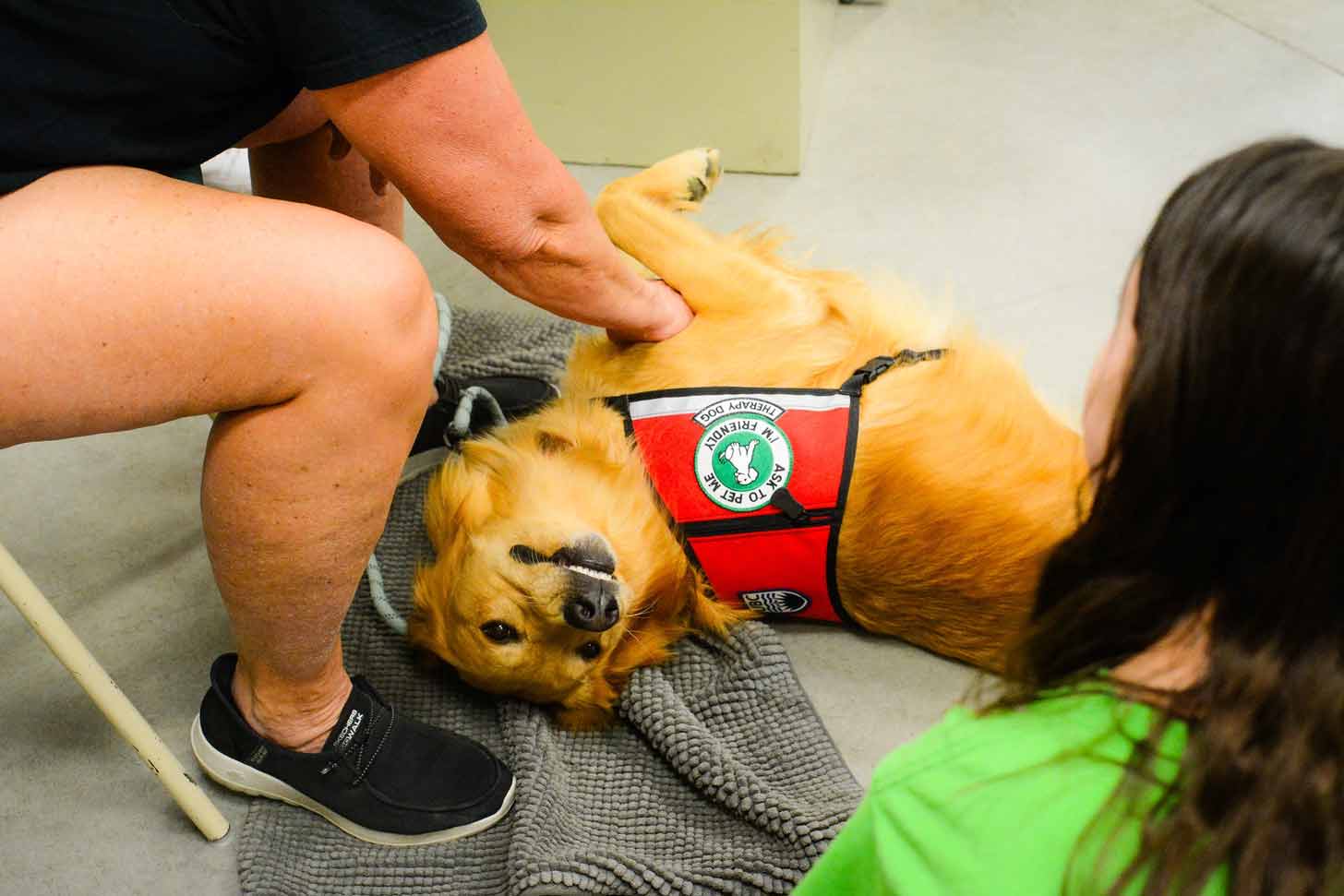Most dog lovers don’t need a formal research paper to tell them that snuggling up with a pup is good for their mental health.
But researchers at the University of British Columbia wondered: Does watching videos of dogs have a similar comforting effect?

To test their hypothesis, researchers recruited more than 900 student participants and 120 community members, who were asked to watch a five-minute pre-recorded video featuring a therapy dog and their handler.
The videos were designed to mimic an in-person therapy dog experience, including guided reflections, visual engagements with the dog, and calming narration from the handler.
All participants completed a short survey before and after watching the video and rated their stress using a visual analog scale, from one (“not stressed at all”) to five (“very stressed.”)

In the end, they found that stress decreased significantly for both student and community member groups after watching the video. For students, average stress scores went from 3.33 to 2.53, and the general public’s scores fell from 3.07 to 2.43.
According to the study, women experienced greater stress reduction than men, though both benefited.
“Our findings demonstrate that even with a virtual session, there was a significant reduction in stress among both the student population and the general public, regardless of age,” Dr. John-Tyler Binfet, Director of UBCO’s Building Academic Retention through K9s (B.A.R.K.) program.
“This suggests that virtual canine comfort modules are an effective, low-cost and accessible resource for those seeking mental health supports.”

The inspiration for this study came from the need to increase accessibility to therapy dogs. Most therapy dog programs are located in urban centers and are often very popular, but during COVID-19 lockdown, restrictions on in-person interactions left a gap in services and wellbeing support.
During this time, the university’s B.A.R.K. program created “virtual canine comfort modules,” which included similar pre-recorded videos of therapy dogs and volunteers. This study, researchers said, gave them the opportunity to replicate the service and study its implications.
The study, which was completely free, easy to access online, and required no appointment or other human interaction, suggests that even very short, low-cost virtual interventions like this can have a positive impact on stress.
“The results suggest that virtual therapy dog interventions can also benefit the broader public, particularly those who face barriers to accessing in-person mental health support, such as access outside of normal operating hours or from a remote location,” a statement from the University of British Columbia said.
“This format may also be ideal for individuals who are hesitant to seek formal mental health support.”

There were some limitations to the study, including no control group that compared the dog videos to other types of calming content. The researchers also only measured immediate stress reduction, so it is unclear whether these benefits can last long-term.
Still, the researchers say, the study opens the door to further research, comparing how virtual therapy dog interventions can best be applied to different audiences and demographics, as well as how to best structure such offerings.
“Regardless, this does reinforce our theory that canine-assisted interventions, whether in person or via teleconferencing, can be beneficial and can help people reduce their stress,” they conclude.
Header image courtesy of the University of British Columbia



